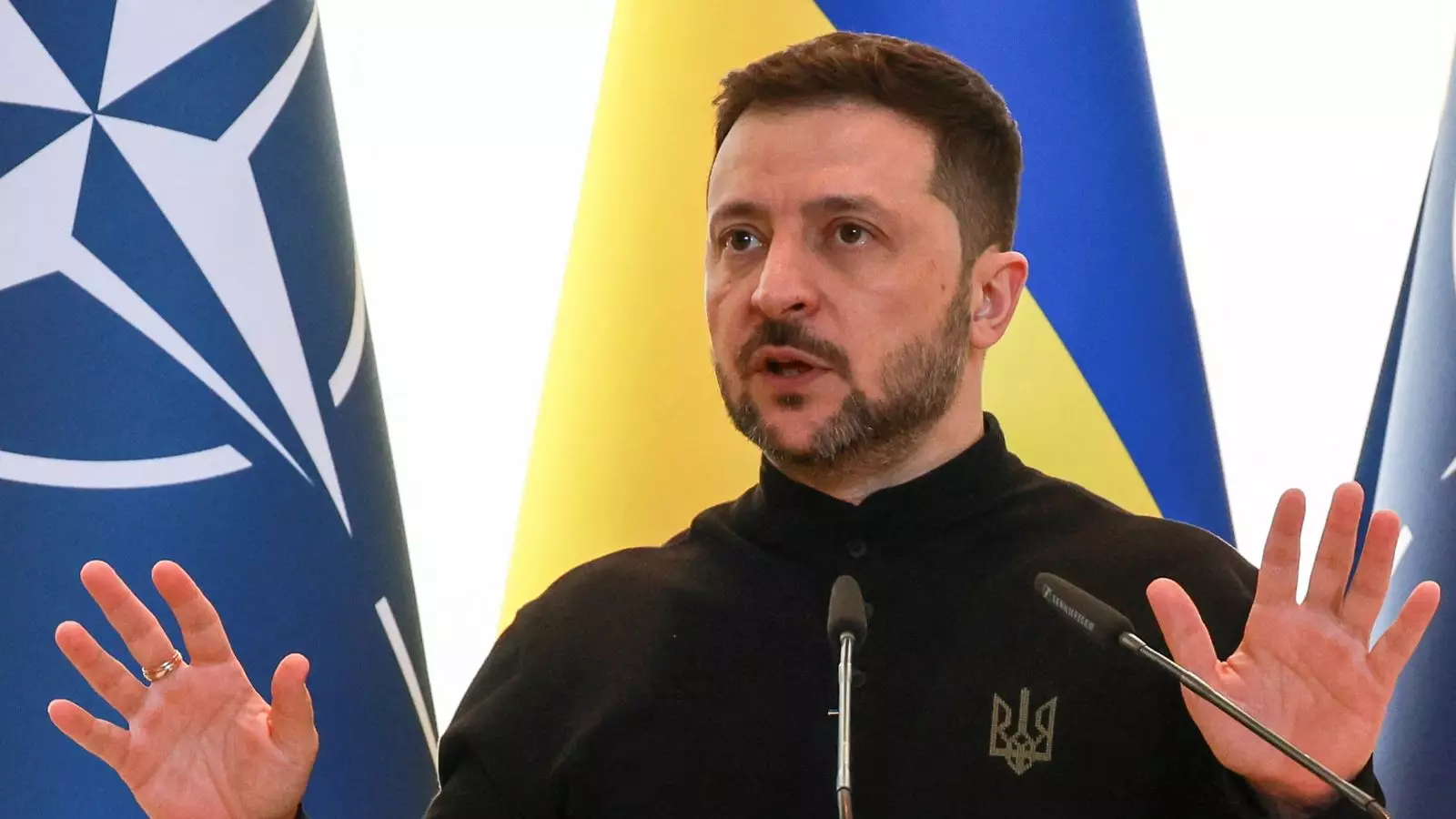In an era where diplomatic dialogues should inspire hope and progress, the recent phone conversation between UK Prime Minister Sir Keir Starmer and Ukrainian President Volodymyr Zelenskyy feels reminiscent of empty rhetoric amidst the brutal realities of war. As they discussed the urgent need to halt Russia’s ongoing aggression, the dialogue seems less like a genuine attempt at peace and more like a perpetuation of platitudes that have continuously failed the people of Ukraine. Starmer’s commitment to “iron-clad support” for Ukraine is commendable, yet how effective can such proclamations be when matched against the steel resolve of Vladimir Putin’s relentless campaign of destruction?
The backdrop to this conversation paints a grim picture—Putin, who offers treacherous olive branches while simultaneously prolonging the conflict, stands as a stark reminder of the paradox of power politics. His statements about being open to bilateral talks concerning a ceasefire don’t resonate as genuine peace initiatives; rather, they signify a desperate maneuver to regain the moral high ground amidst mounting international pressure. While Mr. Zelenskyy’s optimism about establishing a “just and lasting peace” is admirable, one must ponder the weight of such sentiments against the faceless atrocities occurring daily on the ground.
The Illusion of Ceasefires
The Easter truce, meant to signify a temporary respite from violence, only highlights the futility of such gestures. With both sides accusing each other of violation—Zelenskyy asserting over 2,000 breaches by Russia—the notion of a legitimate ceasefire becomes farcical. If this Easter ceasefire was more about posturing than peace, then what hope can there be for future agreements? Russia’s history of breaking commitments at critical junctures further underlines the skepticism surrounding their intentions. It becomes increasingly clear that any pause in hostilities is merely a strategic ploy rather than a pathway to genuine reconciliation.
In a tragic irony, the same Putin who calls for truce appears unperturbed about the bloodshed enveloping Ukraine. His assertions of a “positive attitude toward a truce” ring hollow when juxtaposed against the daily bombardment faced by Ukrainian civilians. The external imposition of truce conditions, like those suggested by the US, inherently misunderstands the autonomy of nations embroiled in conflict. When one side is driven by aggression and the other by desperate self-defense, what negotiation can realistically succeed?
The Role of Global Powers in the Ukrainian Crisis
In this tangled web of diplomacy and conflict, one cannot ignore the broader dynamics at play, including the influence of global powers. The recent utterances of former US President Donald Trump, suggesting hopes for a rapid resolution, add another layer of complexity to the dialogue surrounding peace efforts. Trump’s willingness to abandon negotiation efforts unless clear signs of progress materialize lays bare the precarious nature of international involvement. Yet, turning to the past for guidance or expecting swift decisions based on national security theatrics overlooks the delicate human realities at stake.
This is not merely a geopolitical chess game; it is a humanitarian crisis that requires moral clarity and unwavering support for the victims. The rhetoric from Western leaders, including both subjective optimism and strategic reticence, must be matched with concrete actions that prioritize the agency and rights of the Ukrainian people. As voices of the international community echo in support of Ukraine, action must transcend mere words; it must seek to hold accountable those responsible for ongoing atrocities.
The Path Forward: A Call for Genuine Engagement
As the leaders of Ukraine and the UK navigate these turbulent waters, it is increasingly crucial for them to seek innovative solutions that transcend traditional diplomacy. What might that look like? Perhaps it requires redefining the parameters of peace talks to ensure they align with the realities on the ground rather than the fantasies concocted in Kremlin rooms. Incorporating voices from civil society, local leaders, and humanitarian organizations into the negotiation process could provide a more equitable framework for peace-building.
A strong, unwavering commitment from the international community—one that asserts the need for justice and accountability alongside peace—is essential. Indeed, the dialogue surrounding ceasefires and talks with Putin requires a recalibration of expectations, recognizing that meaningful progress demands not just a cessation of hostilities but also a commitment to addressing underlying grievances and injustices. The road to peace is fraught with challenges, yet it remains imperative that voices like those of Zelenskyy are heard and amplified, lest they be drowned out in a cacophony of political maneuvering.


Leave a Reply